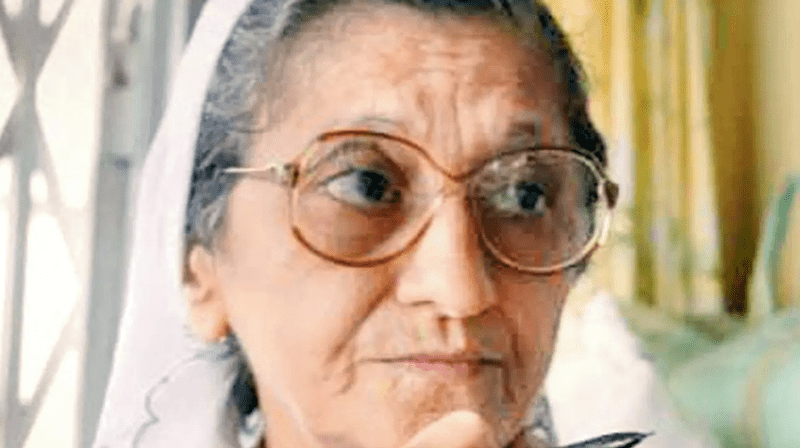Dhun Baria, the feisty reformist who was also orthodox in certain ways, “was a real contradiction,” said Noshir Dadrawalla, her friend and former Bombay Parsi Punchayet (BPP) trustee. The community grapevine started buzzing with the news of Baria’s death early Sunday morning.
Article by Hemal Ashar | Mid-Day
Dadrawalla added, “Most Parsis may remember her either as a well-known and perhaps only Parsi female qawwali singer or as a reformist who shook up the BPP about the weakened system of Dokhmenashini due to lack of vultures. Her agitation led the BPP to install solar panels and make other efforts to strengthen the age-old traditional system of dokhmenashini.”
“She was a firebrand with a low tolerance of fools and liars,” Dadrawalla said with a laugh. “She always spoke her mind. She was a loving and caring daughter to her aged and ailing mother, and after her mother passed away, she created a charitable trust in her memory.”
He added, “She was a reformist, but because of her orthodox streak, too, she was also very regular at prayers, also much misunderstood. In fact, we also started off on the wrong foot, as I used to argue with her, way back in 2002. I gradually started understanding her and learnt that behind a hard exterior was a soft, caring and honest woman. She had been ailing since the past two years. She is now finally at peace and with her beloved mother.”
Solicitor Berjis Desai wrote in 2018 a piece about Baria’s qawwali singing in a community magazine. At that time, Desai had stated, “Baria was blessed with a melodious, if slightly husky voice. Baria did odd jobs in the morning and learnt Urdu at night. Singing lessons followed. This was the era of qawwalis in Bombay, with Shakeela Bano Bhopali, the undisputed queen of the genre. Bhopali was impressed with the girl’s talents and she was engaged to be part of the troupe. A Parsi girl singing qawwali! Sacrilege!”
He had added, “She broke away from the troupe eventually, but actually became the poor man’s Bhopali. She had real guts.”
Desai had said that Baria, who lived in Mumbai Central, had “a large heart. Though she did not have much, she had started a charity trust and did charity work for people afflicted with HIV and commercial sex workers.”
Baria’s mortal remains were cremated on Sunday in Worli.


The coverage of the late Dhun Baria misses the main issues of her fame! In 2006 she boldly entered a Dakhma and photographed the horrid conditions which were publicized in the mainstream media. She was heavily criticized and cheerfully lauded in our chronically polarized Parsi community. There is also an odd reference that her opposition to Dakhmanahini led to the installation of solar panels. She never advocated for that, and she never wanted a “reform”. She advocated abolishing the Dakhma practice. It was the BPP effort to cover up the controversy and speed up the decomposition with the highly publicized Solar Panel alternative. Baria’s option was for cremation, and that is why her mother, and now she herself, was cremated in Worli!
Finally, I take serious exception to the quote from Noshir Dadrawalla, a former BPP trustee, who apparently played a role in combating Dhun Baria while she lived. He is quoted making the ridiculous statement that “She was a reformist, but because of her orthodox streak, too, she was also very regular at prayers.” So, Dadrawalla believes that those whom he labels “reformists” do not pray? What an obnoxious and hurtful statement! It underscores the ignorance of such bigots that continue to divide the Parsi community.
A PostScript comment about solar panels is in place here. The “orthodox” (their term, not mine!) brag about this, yet they oppose cremation because fire is sacred. May I suggest they open their high school science books and note that solar energy is the source of heat and fire? So, if solar panels are used in Dakhmas to burn the cadavers to speed up the decomposition, why not instead install crematoria in the land near all Dakhmas, and use a more sanitary final disposition system?